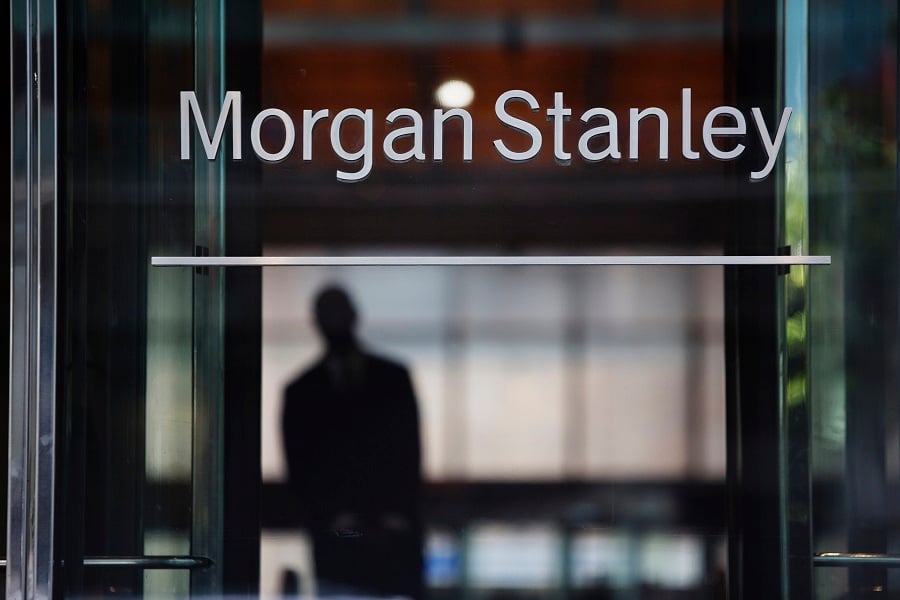

Bill Hwang is pushing to bring up the probe of Morgan Stanley block-trading leaks in an attempt to bolster his defense.
Lawyers for Hwang have asked the judge to be allowed to question a Securities and Exchange Commission official about the agency’s investigation of Morgan Stanley. That probe was into information leaking in connection with the New York-based firm’s block-trading practices during the time it was a counterparty of Archegos.
Prosecutors have relied on Carmen Taveras of the SEC as an expert witness as it tries to prove that Hwang engaged in market manipulation that helped catapult his wealth to more than $36 billion before losing it all in the span of a few days in March 2021. Morgan Stanley executed more than $5 billion of block trades for Archegos in the days before all the family office’s counterparties pushed to liquidate Hwang’s portfolio after the precipitous drop in the value of his biggest bets.
Justice Department prosecutors have sought to paint Hwang’s use of swaps as a deliberate attempt to quietly corner big positions in companies and manipulate the market for those stocks. Hwang, however, has described his reliance on such contracts as an attempt to avoid attracting public attention to his bets — to prevent other market participants from attacking his positions if his wagers became public.
“We believe that such inquiry is relevant and necessary for the defense to establish the legitimate reasons why Mr. Hwang and Archegos sought to maintain the secrecy of their positions,” Barry Berke, a lawyer for Hwang wrote in a letter to the judge overseeing the case. The aim would be to “rebut the implication of Dr. Taveras’s testimony that Archegos used secrecy in order to facilitate manipulation.”
Federal prosecutors argued against the line of questioning, stating they’d already told Hwang’s lawyers that the block trades executed in Archegos’ final week were not part of the investigation.
A multi-year investigation into block trading across the industry culminated in January after Morgan Stanley agreed to pay $249 million to the Justice Department and the SEC. The probe faulted Morgan Stanley for giving hedge funds advance warning as clients planned to sell slugs of stock big enough to move market prices. The Justice Department and the SEC said bank employees doled out the information, with the expectation that hedge funds would short the stocks and position themselves to buy parts of a block once it hit the market.
Hwang’s lawyers also cite a call recording produced by the prosecution that was obtained from the Morgan Stanley investigation where an executive at Citadel tells a Morgan Stanley banker “you took out Bill Hwang with the Viacom.”
The Morgan Stanley executive replied: “Yeah.”

Chasing productivity is one thing, but when you're cutting corners, missing details, and making mistakes, it's time to take a step back.

It is not clear how many employees will be affected, but none of the private partnership’s 20,000 financial advisors will see their jobs at risk.

The historic summer sitting saw a roughly two-thirds pass rate, with most CFP hopefuls falling in the under-40 age group.

"The greed and deception of this Ponzi scheme has resulted in the same way they have throughout history," said Daniel Brubaker, U.S. Postal Inspection Service inspector in charge.

Elsewhere, an advisor formerly with a Commonwealth affiliate firm is launching her own independent practice with an Osaic OSJ.
Stan Gregor, Chairman & CEO of Summit Financial Holdings, explores how RIAs can meet growing demand for family office-style services among mass affluent clients through tax-first planning, technology, and collaboration—positioning firms for long-term success
Chris Vizzi, Co-Founder & Partner of South Coast Investment Advisors, LLC, shares how 2025 estate tax changes—$13.99M per person—offer more than tax savings. Learn how to pass on purpose, values, and vision to unite generations and give wealth lasting meaning
